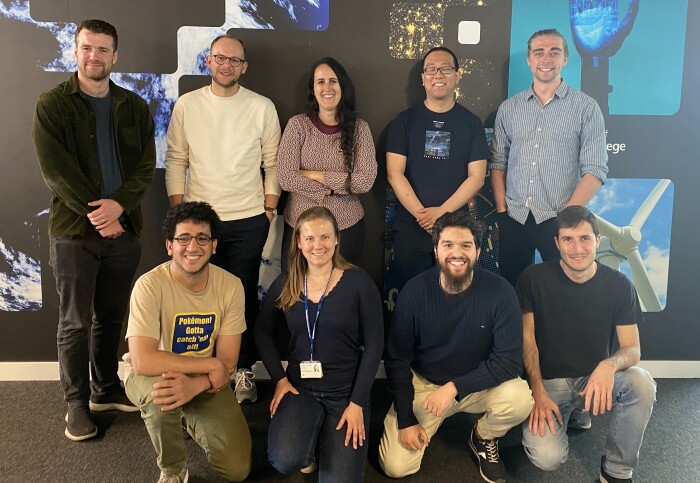Imperial will recruit 16 fellows in artificial intelligence

The I-X Centre for AI in Science has just announced sixteen fellowships in AI in Science.
The I-X Centre for AI in Science seeks sixteen new fellows to join their prestigious programme and accelerate artificial intelligence research in Engineering, Natural and Mathematical Sciences. Supported by Schmidt Sciences, these highly competitive fellowships aim to identify excellent researchers and accelerate them in using AI to advance and disrupt science or engineering. The fellowships are flexible and independent, meaning that the recipients will be able to freely explore while drawing on expert faculty mentors of their choice.
The new fellows will receive bespoke training as well as one-to-one career development support and will join a collocated cohort of top scholars in AI at I-X. Based in the heart of the White City campus, they will benefit from working in a collaborative environment and will have an opportunity to contribute to interdisciplinary research conducted by the I-X community. Apart from engaging in various research activities taking place at I-X, including research seminars, tutorials, and technical talks, fellows will also have access to Advanced AI Courses, pre-acceleration training material, appointment-specific faculty interview preparation, and grant writing courses. Additionally, they will be offered the support of a dedicated Career Development Consultant and Senior Teaching Fellow.
About the Fellowships
“We now have some extremely impressive fellows in place and we're very much looking forward to welcoming our next set of diverse and interdisciplinary independent fellows.” Professor Nick Jones Director of the I-X AI in Science Centre
With sixteen opportunities currently available, the fellowships offer to substantially advance a particular area of science and acquire new expertise in artificial intelligence applied to a core discipline. Researchers with a background in science might use the fellowships to deepen their AI skills to advance their science, while researchers from an AI context might deepen their scientific knowledge in a specific area. Potential applicants should keep in mind that prior extensive expertise in AI is not required, and AI is interpreted very broadly (covering themes from Bayesian Inference to Robotics).
Professor Nick Jones, Director of the I-X AI in Science Centre said: “We now have some extremely impressive fellows in place and we're very much looking forward to welcoming our next set of diverse and interdisciplinary independent fellows.”
The available fellowships are divided into three main categories:
- Eight 2-year Eric and Wendy Schmidt AI in Science Postdoctoral Fellowships at Research Associate or Research Fellow level (closing 20 September);
- Two 2-year Chapman Schmidt Fellowships at Research Associate or Research Fellow level (closing 20 September);
- Six 4-year Independent Fellowships in AI in Science offered through Imperial College Research Fellowships, supported by Schmidt Sciences (closing 19 August).
The I-X Centre for AI in Science is committed to creating equal opportunities. The centre offers additional support for women in AI in Science, including additional career development funds through the I-X Women in AI Network, with at least one candidate expected to be appointed through this route. The centre also promotes a culture of respect, empathy, and purposeful happiness, recognising kindness among scientists as a core value.
Finally, the I-X Centre for AI in Science is dedicated to creating opportunities for and working with the local community and researchers and students from Lower- and Middle-Income Countries.
Reflecting on the fellowship and the opportunities it unlocks, Schmidt Fellow, Dr Alice Malivert said: “It is rare in academia to find such a perfect mix of independence and support. This scheme is fantastic for interdisciplinary researchers looking to start or deepen their journey in AI.”
Sixteen fellowship opportunities are now live on Imperial Jobs. Detailed information about the application process can be found on the I-X Centre for AI in Science website.
Article text (excluding photos or graphics) © Imperial College London.
Photos and graphics subject to third party copyright used with permission or © Imperial College London.
Reporter
Wiktoria Tunska
Institute of Global Health Innovation
